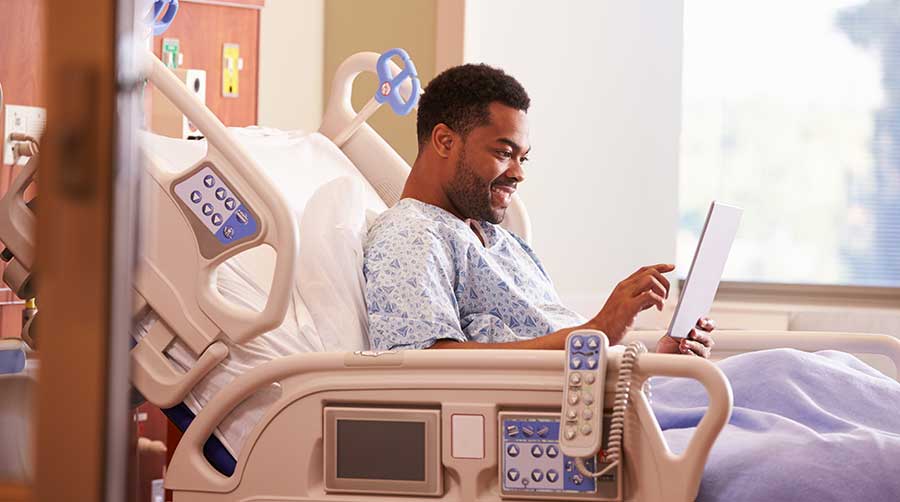For all the boons technology has provided for healthcare, one notable benefit is customizing and tailoring the patient experience down to the individual’s needs. This ultimately allows for the patient to control aspects of their care.
Technology comes in various forms, even in subtle ones such as lighting controls. Lighting plays a large role in patient comfort and giving them the ability to control it makes their experience more suited to their needs.
Beverley Spencer, senior interior designer at FCArchitects, says that lighting controls involve day lighting, windows, shades and dimmable fixtures. She adds that while the current occupant might prefer their settings, the next occupant may not, which is where greater control for patients empowers them to individualize their experiences.
This idea of greater control being in the hands of patients also carries over into their care and benefits many other aspects of their care. Other technologies such as tablets and smart TV’s can add to this, as Spencer says that she has seen an increase in both recently. Bedside tablets and even patients’ smartphones can enable access to various applications for their stay. Whereas smart TV’s can be used for virtual consultations, entertainment or education.
Going further with this concept, Sarah Harvey, senior interior designer – healthcare at FCArchitects, says that certain technologies could be used to create a profile tied and attuned to a specific patient, thus allowing greater customization.
“I have heard some kind of inklings having your own profile with the facility system,” says Harvey. “Then when you come and check in for an appointment, it already has all your likes and dislikes logged. It is specced into your account so that when you get assigned to a room it makes all its pre-adjustments for you before you get there – almost like a smart room.”
While technology like this may be years off, what is not is getting people to adopt newer technologies and the advances they bring about. While older generations may be less keen on trying new technology, Generation Z may be more amicable towards things like the smart room.
To address hesitation, Harvey suggests educating patients and others on the emerging technologies that could have an impact on their healthcare experiences. She even mentions the possibility of doing trials for these technologies to see how people would respond.
“We could soft launch a lot of things instead of just dropping it on people which just causes a lot of confusion,” says Harvey. “Specifically, target groups to test with and ask people if they would be interested in doing a trial. I mean, that is not an uncommon question in healthcare in general, especially in the cases of treatments. Instead of would you want to try this new treatment, it could be would you like to trial this new process we are trying to make more efficient for you? I think that is definitely doable.”
Overall, Harvey stresses that these technologies must transcend different generations. Spencer agrees, saying that in order for these technological advances to be adopted, they have to be enjoyed by each generation.
Jeff Wardon, Jr. is the assistant editor for the facilities market.

 The High Cost of Healthcare Violence
The High Cost of Healthcare Violence EVS Teams Can Improve Patient Experience in Emergency Departments
EVS Teams Can Improve Patient Experience in Emergency Departments East Tennessee Children's Hospital to Become Dolly Parton Children's Hospital
East Tennessee Children's Hospital to Become Dolly Parton Children's Hospital The Future of the Global Hospital Hygiene Market
The Future of the Global Hospital Hygiene Market Rethinking Fire Safety Inspections
Rethinking Fire Safety Inspections